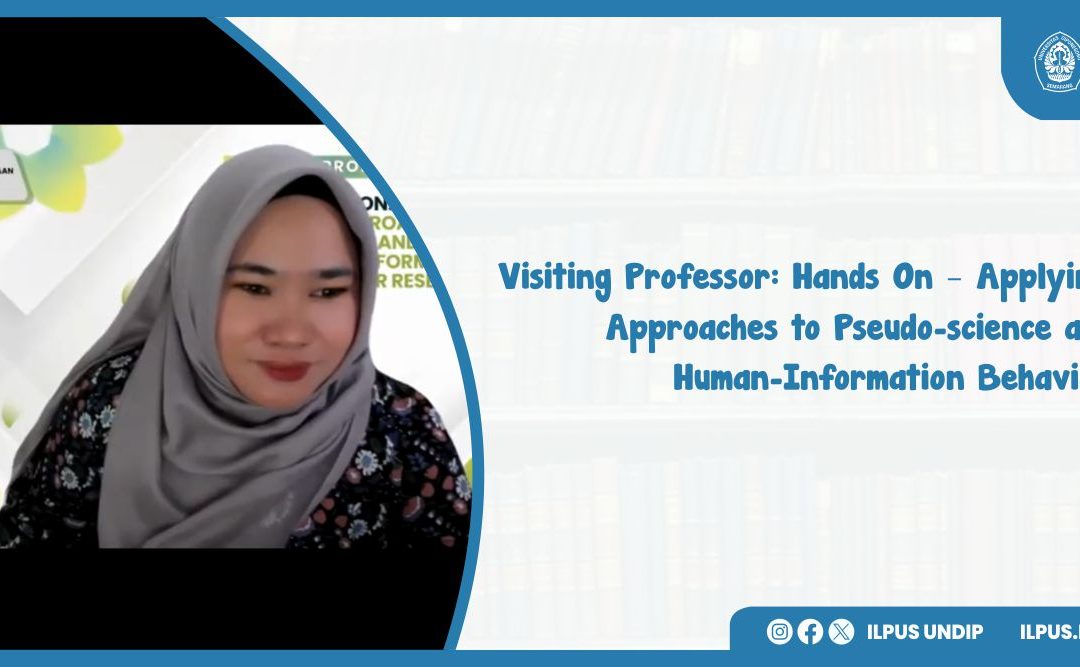Semarang, October 27th 2025 – The Library and Information Science Study Program, Faculty of Cultural Sciences, Diponegoro University, held a public lecture program with the theme “Hands On: Applying Critical Approaches to Pseudo-science and Bias in Human-Information Behaviour (HIB)”, which presented by Rahmi, S.Hum., M.Sc., Ph.D, a lecturer from the Departement of Library and Information Science, Faculty of Cultural Sciences, University of Indonesia. 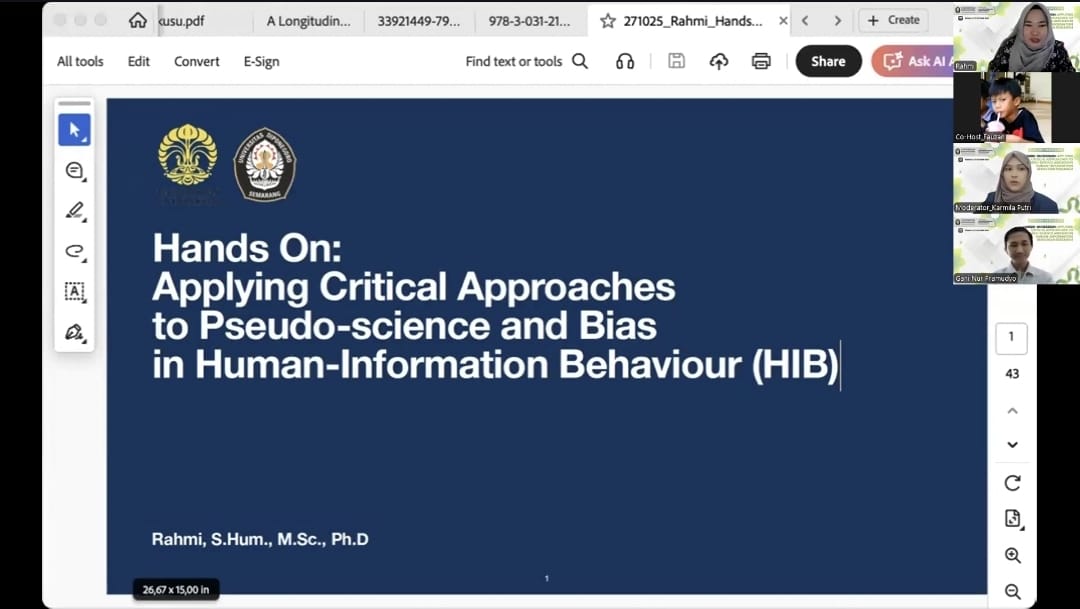
Rahmi is an academic who pursued her master’s and doctoral degrees at the University of Tsukuba, Japan, with research focus on human-centered approaches to information behavior. Aside from her academic activities, Rahmi is also a member of AP-iNext (Asia-Pacific iSchools Next Generation Commiittee) and an expert staff member at UI GreenMetric. In her presentation, Rahmi encouraged participants to understand how bias and pseudoscience influence research and individual behavior in processing information.
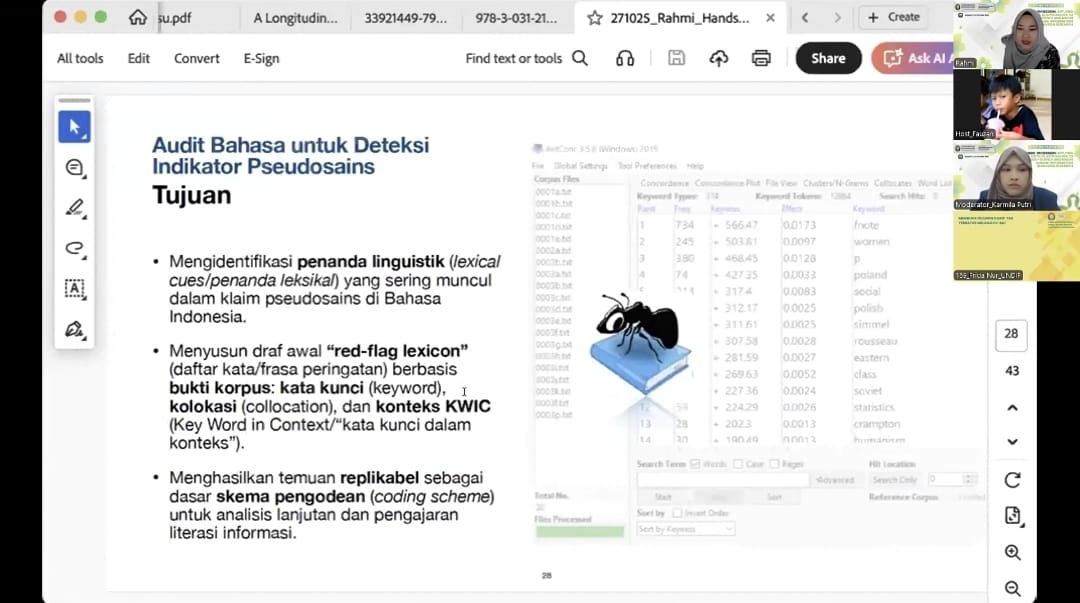
Rahmi explained the basic concept of Human-Information Behaviour (HIB), which is how people search for, evaluate, and use information in the social and cultural lives. She highlighted the importance of distinguishing between science and pseudoscience, which are claims that resemble science but do not follow scientific methods. Rahmi also explained various key concepts such as misinformation, disinformation, malinformation, and the 4L Bias Map concept, which covers biases in research such as design, data, analysis, and reporting biases.
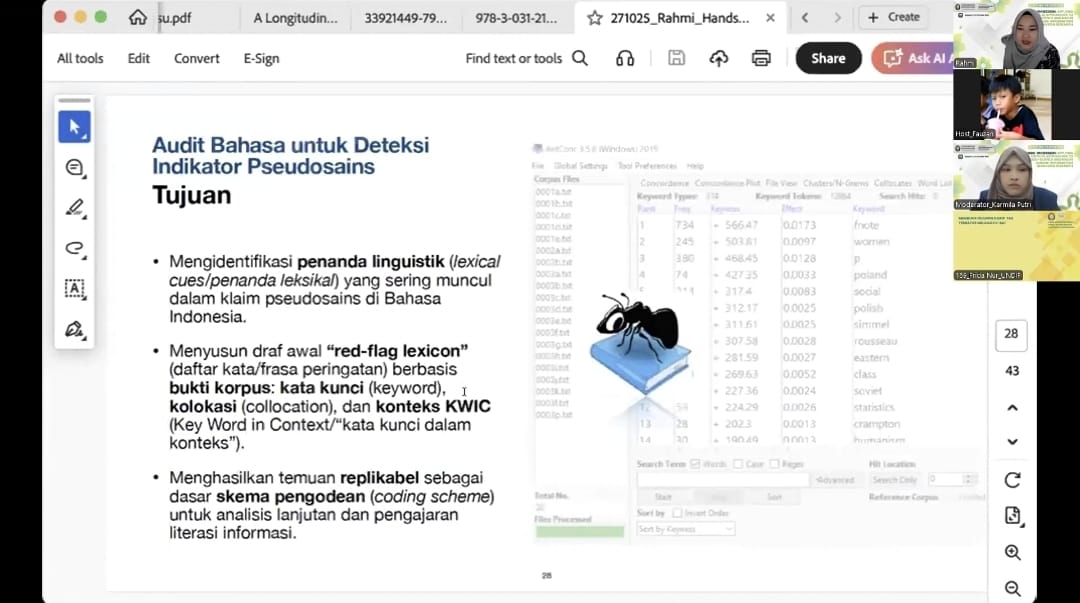
Later on, Rahmi explained how to use AntConc software to conduct corpus analysis. Participants were invited to explore the language patterns and keywords that often appear in pseudoscience claim, such as “no side effects”, “positive energy”, or “scientifically proven”. These language patterns are often used to build pseudo validity and convince the public without scientific evidence. In addition, the use of tools such as AntCont is important for executing linguistic audit, so that researchers can systematically detect bias and false claims in texts.
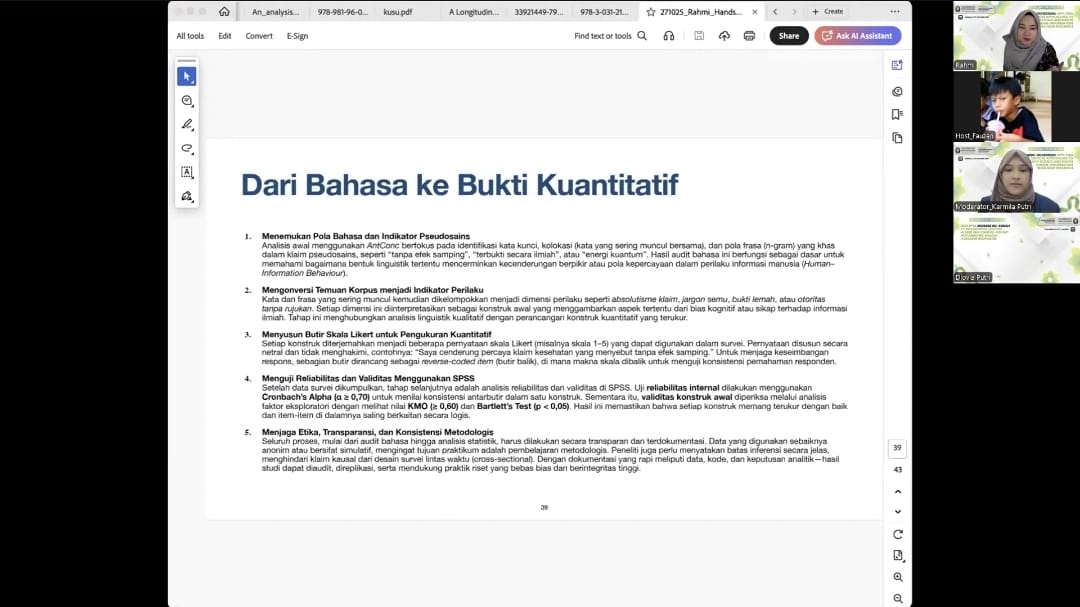
Rahmi also introduced the SPPS and RStudio applications to test the reliability and validity of research data. Through simple exercises, participants learned to use Cronbach’s Alpha test for data consistency and Exploratory Factor Analysis (EFA) to identify variable structures. Rahmi emphasized the importance of open science through data and analysis code transparency, so that research results can be verified by other researchers. With this approach, Rahmi taught that information behavior research should not only focus on data collection, but also on ethics, transparency, and awareness of bias.
Writer: Dwi Indri Listia Sari

